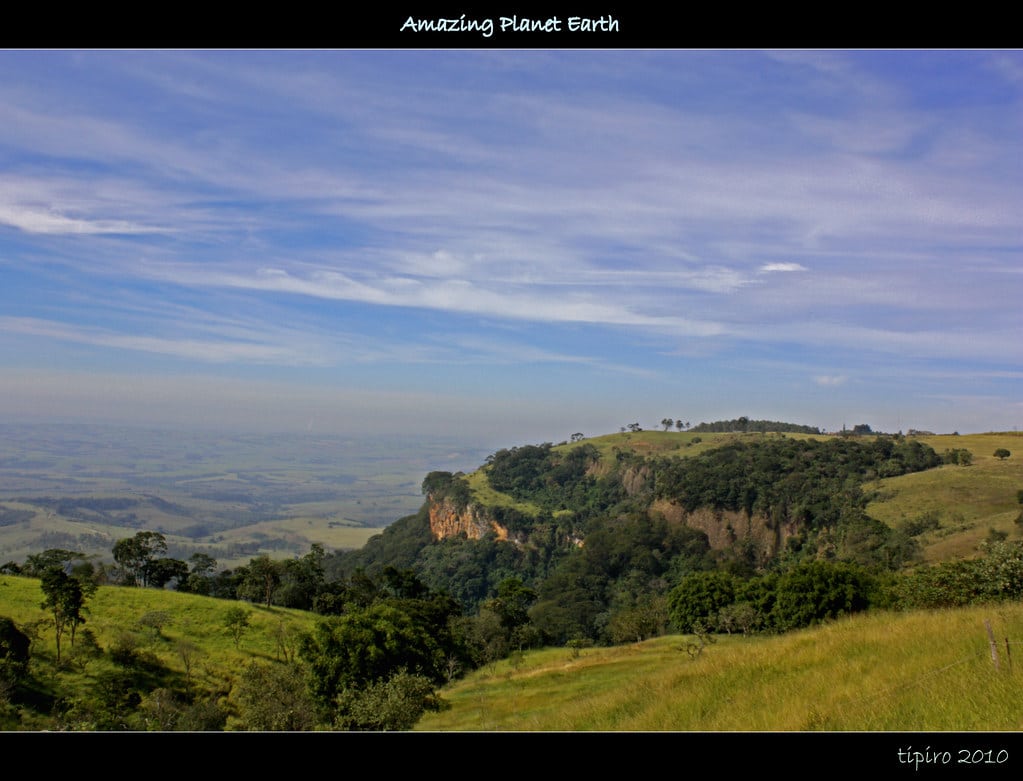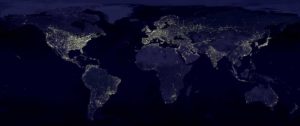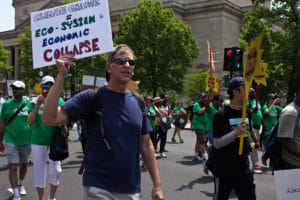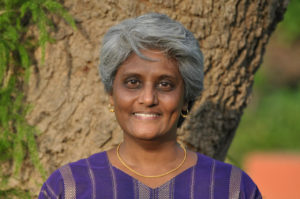
Our Moment on Earth – Part I
by Usha Aexander
[This is the seventh in a series of essays, On Climate Truth and Fiction, in which I raise questions about environmental distress, the human experience, and storytelling. It first appeared on 3 Quarks Daily. This seventh essay is divided into three parts. The sixth essay in the series, called “Modern Myths of Human Power”, is here.]
“Our plan B has always been grounded in our beliefs around the continued evolution of technology and engineered solutions to address and react to whatever the climate system and its outcomes present to us, whether that be in the form of rises in sea level, which we think you can address through different engineering accommodations along coastal areas, to changing agricultural production due to changes in weather patterns that may or may not be induced by climate change.” (Rex Tillerson, as CEO of ExxonMobile, to shareholders in 2015.
***

For the past few years, I’ve been taking a fairly deep dive into attempting to understand the physical and ecological changes occurring on our planet and how these will affect human lives and civilization. As I’ve immersed myself in the science and the massive societal hurdles that stand in the way of an adequate response, I’m becoming aware that this exercise is changing me, too. I feel it inside my body, like a grey mass coalescing in my chest, sticking to everything, tugging against my heart and occluding my lungs. A couple of months ago, I decided to stop writing on this subject, to step away from these thoughts and concerns, because of their discomfiting darkness.
But I’ve discovered that walking away from this matter is no longer something I can just choose to do. For I now experience the world in a different way than I once did, as they grey mass clouds my vision and leaves its residue on everything I touch. I’ve come to see the changing Earth as the greatest single force shaping human affairs into the future, the backdrop against which the human story will play out and respond.

Just as the temperate stability of the Holocene once enabled the shift from nomadism to settled farming and all of civilization, so the ongoing mass extinction of species and the rapidly warming climate will erode our present modes of life and maps of political order to make way for something new. Not just new, but very likely burdened by unprecedented collective hardship that stresses and tests our political systems, economies, infrastructures, and provisioning networks as never before. Some of these systems will fail. Without knowing how extremely or how quickly the planetary changes will occur, but knowing with some predictive capacity – unlike our Paleolithic ancestors – that an essential and irreversible change is underway, makes it difficult not to feel frightened and aggrieved for our future, even if I may not live to see the most startling changes. But then, what I’ve already witnessed has been startling enough.
Coming to terms with everything I’m learning has been a journey. It’s granted me some clarity, but from where I stand, the way to greater understanding looks terrifying and exhausting, more crags and crevasses arrayed before me, stretching to an unknown horizon. I’ve had to pause and ask, what exactly is my destination? And I’m realizing that this adventure will not finally deliver me to any epiphany or place of rest – no fine green valley of flowering optimism, no stalwart fortress of comfort and certitude. My destination is inward. My desire is to reckon with what is, to let my life be transformed by the deepest understanding I can muster of what’s humanely possible and what it means to be alive during this moment on Earth. My hope is to dismantle the illusions that I most fear to lose, that I might thereby dismantle my fear itself, and prepare myself to imagine more sustainable and humane ways to live – and, If I’m very lucky, to inspire others to walk with me, as we all begin to grasp for meaning and metaphor in the coming era of unprecedented transitions.
Thus far, I’ve attempted to do this by looking at the long story of human experience and how our stories both reflect and shape our understanding of ourselves and our world. It is here, I think, that we find the fluid intersections of reality and projection that inform how we approach our world, what we think is right or possible. Our myths, secular and religious, both shape and are shaped by the way we regard science, governance, work, history, society, and future potentials. And for the first time, our stories must now reckon with rapid cultural and material changes on a global scale as well as the emerging dire insights into our planetary future. The narratives that have brought us to this point seem woefully inadequate in facing that future.
[End of Part I]
[Our Moment on Earth – Part II]

Usha Alexander was born to Indian immigrants who came to the United States in the 1950s and settled in the very small town of Pocatello, Idaho. She ran away to university at the age of 19, and later joined the US Peace Corps, where she served as a science teacher in the archipelago nation of Vanuatu. In the late 90s, Usha made her way to the San Francisco Bay Area of California, where she settled and worked for Apple Computer for many years.
Since 2013, Usha resides with her partner, writer and photographer, Namit Arora, in the National Capital Region of India. Usha has lived in four different countries and has learned to carry her home within herself, yet she frequently returns to the CA Bay Area with a certain sense of homecoming.